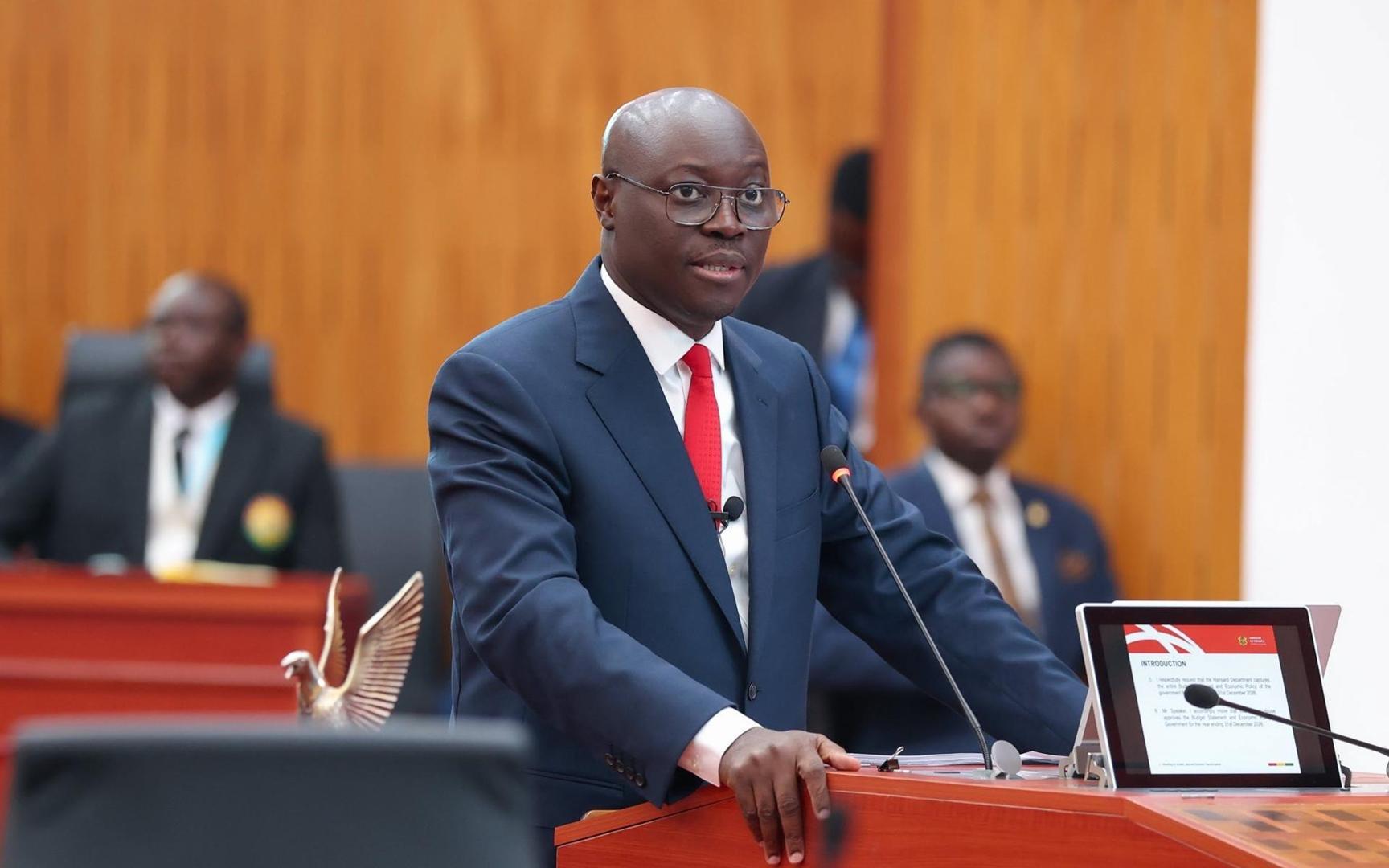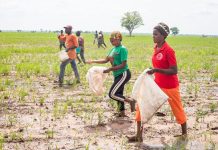Africa-Press – Ghana. The Government has announced a GHS1.7 billion investment into Ghana’s agriculture value chain, aimed at increasing food production, improving rural connectivity, and accelerating value-addition and export-driven industrialisation.
Dr. Cassiel Ato Baah Forson, Minister of Finance, announced this during the presentation of the 2026 Budget to Parliament, noting that the move was to address high food prices, reduce food inflation and create some 250,000 jobs.
“In agriculture, over GHS1.7 billion is being invested in roads, processing zones, and value chains, directly where jobs are created and livelihoods improved,” and announced a three-year programme to construct 1,000 kilometres of agricultural enclave roads, targeting only high-producing food zones.
The government has, therefore, allocated GHS828 million for the construction of 1,000km of agriculture enclave roads and GHS690m to commence the operationalisation of the Farmer Service Centres, aimed at boosting production and facilitating the transportation of farm produce to markets and reduce food inflation.
Dr. Forson said the Agricultural Enclave Roads Programme, “will ensure that food produced is transported from farm gates to markets to reduce transportation costs, post-harvest losses and enhance food security generally.”
Under the Farmer Service Centres initiative, some 50 districts would benefit from 660 tractors, 300 tractor trailers, 200 minitractors, 200 minitractor trailers, 200 minitractor tillers, 200 minitractor cultivators, 200 minitractor ploughs, 200 minitractor harrows, 200 minitractor cutter bars, 200 minitractor mowers.
Other machinery are 460 3-disc ploughs, 200 4-disc ploughs, 330 16-disc harrows, 100 1000kg mineral fertilizer spreaders, 100 4-row precision seed drills, 100 6-row precision seed drills, 100 32-row pneumatic seed drills, 300 800l boom sprayers, 50 combine harvesters, 50 maize headers for combine harvester and 25 soy headers for combine harvester.
He noted that the theme for the 2026 budget: “Resetting for Growth, Jobs, and Economic Transformation,” reflected government’s resolve to make agriculture the engine of national renewal.
“Agriculture remains the heartbeat of Ghana’s economy, the source of food, jobs and dignity for millions of our people… Our vision is a Ghana that produces more than it consumes, exports value-added goods, and where every citizen lives with dignity and pride,” Dr. Forson said.
On agro-processing, the Finance Minister said seven fully equipped agro-processing plants were set to become operational in the Northern, Central, Ahafo, Bono, Bono East, North East, and Western North Regions.
“These will process yam, fish, poultry, cashew, rice, shea, and palm kernel oil, cutting post-harvest losses, generating 700 direct jobs, and providing reliable markets for thousands of farmers,” he noted.
“The focus is on creating agro-industrial enclaves across the country, dynamic hubs where production, processing, and distribution happen around the clock. This is how we will feed our people, provide raw materials for our industries, reduce imports, create jobs and make farming profitable again,” he stated.
Another highlight of the Budget on the agric sector was the launch of the National Policy on Integrated Oil Palm Development, aimed at reversing Ghana’s heavy reliance on imported crude palm oil, which costs the nation over US$200 million annually.
The policy targets 100,000 hectares of new plantations, self-sufficiency in palm oil production, and the creation of 250,000 jobs across the value chain through the establishment of a US$500 million Oil Palm Development Finance Window.
The partnership with the World Bank, Development Bank Ghana, and other Development Finance Institutions (DFIs), would see smallholder farmers benefit from an out-grower partnership scheme offering seedlings, credit, mechanisation, and guaranteed offtake.
“The transformation has begun. Agriculture is not just an occupation; it is the engine of Ghana’s renewal. We will invest boldly in energy, infrastructure, commercial agriculture, aquaculture, and agribusiness, and expand transformative programmes like the 24-Hour Economy and the Big Push,” Dr. Forson said.
For More News And Analysis About Ghana Follow Africa-Press







